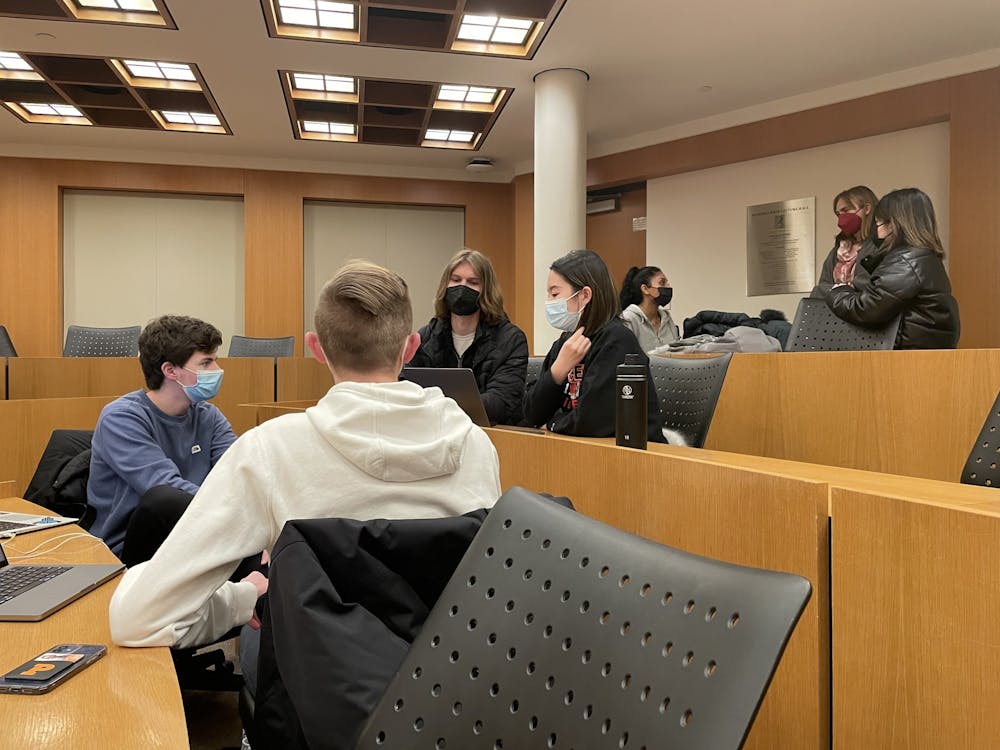The following is a guest contribution and reflects the author’s views alone. For information on how to submit an article to the Opinion Section, click here.
Most campus discussion surrounding the upcoming referenda votes, including in the Opinion section of The Daily Princetonian, has focused on the student-initiated Caterpillar referendum. But the Mental Health Resources and DEI Committee Institutionalization referenda should also draw significant student interest. Not only do these two referenda focus on topics directly affecting student life, they represent a new approach by the Undergraduate Student Government (USG). For the first time in recent history, the USG Senate chose to initiate these two referenda which means that, unlike in the case of the student-initiated “Caterpillar” referendum, the Senate voted to break neutrality and officially endorse them. Therefore, these referenda should be understood as indicating a new level of seriousness on the issues of mental health resources and diversity, equity, and inclusion on the part of the Senate.
If you have ever paid any attention to a USG Senate campaign, you will have seen pretty much every candidate includes something about mental health, inclusivity, and transparency on their policy platform. Although these inclusions represent the best intentions, the fact that candidates promise to solve the same issues in similar ways every year indicates either that minimal progress has been made or that USG has failed to effectively communicate what has been accomplished.
I personally remember speaking to a friend when I decided to run to be a U-Councilor who was disappointed that despite yearly campaign promises to address mental health issues on campus, he thought there was little to show for it which led him to discount the institution as a whole. That conversation and many others like it indicate strongly that our previous approach to solving these problems is flawed, both from an efficacy and comprehensibility standpoint.
That context requires us to rethink how we should work going forward. The Mental Health Resources referendum that I am sponsoring reflects that fact.
The referendum sets the scope and timeline for an investigation into unmet demand for the University’s mental health resources, committing us to forcing administration to complete a meaningful report before the start of classes this coming fall. This means that, if this referendum passes, students will hopefully be able to see a tangible impact on mental health resources before the end of 2022.
This referendum also moves a process that would have historically started and ended behind closed doors into the open. Although there are some circumstances which call for working in a more private manner (an example of this is our continued advocacy for the implementation of community dining), the zeal that the student body has for seeing tangible progress on the issue of mental health makes transparency particularly meaningful. The referendum commits USG to providing regular updates to show the student body how we are working with the administration to meet unmet demand for mental health resources on campus. This requirement for active presentation of our work is a meaningful departure from the typical USG pursuit of passive transparency, which just involves making information publicly accessible.
The DEI Committee Institutionalization Referendum should also send a strong message about how USG is rethinking how it can most effectively operate. Previously, the DEI committee had existed in a standing capacity that left it with limited authority to effectively advocate for students. DEI Committee Chair Braiden Aaronson ’25 recognized this problem and worked to give the committee the platform it needs to function by drafting the referendum, which makes the DEI Committee an official core committee of USG.

This effort, along with the reform work that USG is undertaking, demonstrates a revitalized commitment to making the USG Senate a body that can effectively advocate for students in a way that is meaningful and evident to the student body.
Other USG members could testify that I’m certainly no fan of the USG Senate in its current form. Therefore, although you may have to partially take my word for it, my support for these referenda should indicate that these genuinely represent meaningful steps towards a more effective and more serious USG. In order to make this progress, though, we need your support. Vote YES on both referendum No. 1: DEI Committee Institutionalization and referendum No. 2: Mental Health Resources Investigation when voting is open from noon April 11 to noon April 13!
Stephen Daniels is a sophomore and serves as a USG U-Councilor and the co-chair of the Mental Health Resources Task Force. USG Diversity, Equity, and Inclusion Chair and first-year Braiden Aaronson contributed to this piece.









